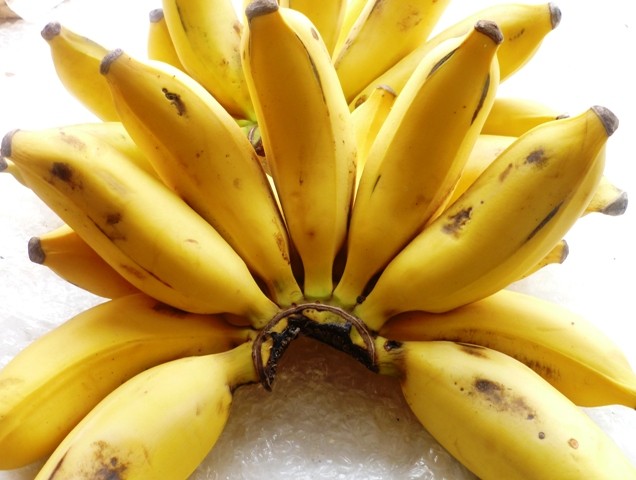Bananas are a very common and affordable favourite as far as fruits are concerned. They are also quite filling and can be a suitable replacement for sugary snacks at any time of the day.
Most often, weight watchers and health buffs would rather fill up on them than regular food. The question now is how much calories do you really lose when you eat a banana? These potassium rich fruits are packed with vitamins A, B6, C and E as well as Calcium, Phosphate and Niacin. They are affordable sources of these nutrients and more.
In addition to this, a banana is a super foods for people who exercise because it provides a quick burst of energy when needed. Coming off at about 120calories for a medium sized banana, 27grams of carbohydrate and no fats.
The Weight Myth and Bananas
Do they really help to lose or gain weight? Well this question can’t be answered as a simple yes or no. As far as fruits go, banana is an average fruit, with no more or less sugar than most other fruits. Bananas are great for powering workouts and as post workout snacks with their high fiber content.
Carbs
For those who believe in a low-carb or low carb diet for weight-loss, then bananas are a no-no. You can take a single banana or half a large banana as your single source of carbs. But as far as regular foods go, bananas are a great substitute for processed sugars. A cup of sliced bananas or one whole banana a day isn’t a bad choice of your daily fruit intake.
ALSO READ: 7 SURPRISING BEAUTY BENEFITS OF BANANA PEELS ON YOUR SKIN
Fibre
Bananas are rich in fibre and pectin. This combination helps you stay fuller for longer and could go a long way in keeping you satiated. Bananas can therefore make a great substitute to foods higher in carbs but low on fiber.
Potassium
Being high in potassium, bananas are a great snack for people suffering from high blood pressure. A single medium sized banana provides about 10% of the required daily amount of potassium.
Location

Apparently, if you live close to where these amazing suckers grow naturally, you get a guilt free pass to have some more bananas. Since bananas contain carbs, eating them in addition to other high-carb foods isn’t advisable. Certain studies have however alluded that if you get your banana fresh and natural, they aren’t so bad. Genetically modified and processed variants are less healthy than the naturally growing bananas.
Glycemic Index of Bananas
These fruits have a glycemic index of about 50. This is a measure of how easily a food releases sugar into the blood causes a spike in blood sugar. At 50, they have a medium to low Glycemic Index and are thus relatively safe.
Fruit world
An average banana contains 105 calories and 27 grams of carbohydrate and can be effectively compared to the under-listed fruits.
- A medium pear (103 calories, 27 gm carb)
- 1 medium apple (95 calories, 25 gm carb)
- A cup pineapple (82 calories, 21 gm carb)
- 1 cup blueberries (84 calories, 21 gm carb).
They also contain approximately the same amount of calories as a medium sized avocado. On the whole, they sure are healthy fruits and nutrients packed.
But remember;Bananas are high in sugars and carbs and should be taken in moderation, like most other fruits. They are healthier substitutes to processed foods and other starchy carbs such as pasta and. Rice. But these locally grown suckers are most definitely healthier snack options to processed floury and sugary snacks.
Power your workouts with these amazing fruits and thank us later.










Your article helped me a lot, is there any more related content? Thanks!